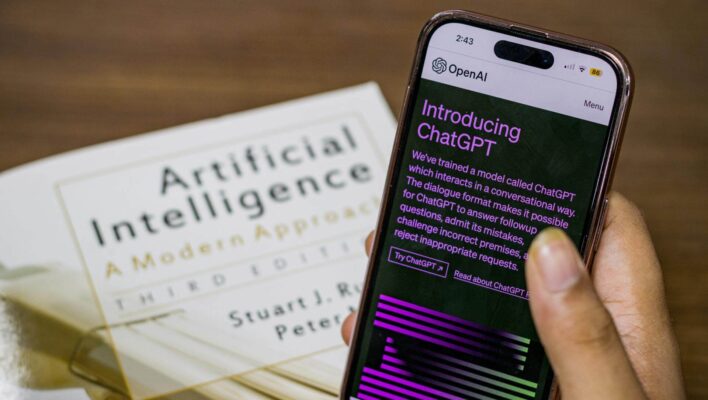ChatGPT launched in late 2022. By the middle of 2025, the platform was fielding 18 billion messages per week from 700 million users. Needless to say, that’s a big change.
Now, a new study has dug into the data on exactly how that generative AI chatbot is being used. Most conversations with ChatGPT are for personal reasons, not work-related ones, it turns out.
Another insight from the study — which analyzed over 1.5 million chats — revealed that one out of every four conversations centered around information gathering. Here’s what else to know.
More and More Personal Reasons to Use ChatGPT
The giant new 62-page research paper, done in collaboration with Duke and Harvard universities and which is available online, found that 73% of all conversations during June 2025 were for non-work reasons, in contrast to just 27% being for work reasons during that time period.
That’s a shift towards personal use when compared to how people were using ChatGPT exactly one year earlier: In June 2024, 53% of uses were non-work-related, while 47% were for work reasons.
 This just in! View
This just in! View
the top business tech deals for 2026 👨💻
Perhaps better work performance was the reason why many users first checked out ChatGPT, with its benefits later slipping into their personal lives as well.
That’s just one interpretation of the data, however.
10% of Adults Globally Are Using ChatGPT
It’s also possible that the last year saw a demographic shift in the types of people who began using ChatGPT. After all, the tool has a big pool of users: About 10% of the total global adult population is interacting with ChatGPT, the study found.
The last few years have seen a gendered shift in use, too: In early 2023, about 80% of users had “typically masculine” first names, but in June 2025, 52% of users had feminine names. That’s a gender split that much more closely maps to the actual population of the planet.
It’s clear that personal use of AI is higher than ever, and that more people than ever are trying it out.
What Are People Using ChatGPT for?
The three most common uses of ChatGPT were, in order: “Practical guidance,” “Writing,” and “Seeking information.”
“Practical guidance” was the number one use case, representing 28.3% of all chats. That’s a category that’s wide enough to encompass a huge range of how-to advice, from schoolwork aid to workout tips.
However, not that many people are turning to the bot for relationship advice, even if AI girlfriends are making headlines: Just 1.9% of the conversations are about relationships, feelings, and “discussing personal reflections.”
What’s the ultimate impact of this widespread ChatGPT consultation? We’ll no doubt see many more studies on the subject in the years come, although we already have a few to consider, from a recent MIT study that found AI tools are reducing “engagement in deep, reflective thinking,” to a research paper from Microsoft and Carnegie Mellon University that raised “concerns about long-term reliance.”




